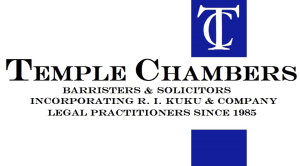- Obekpa House, 15 Mahatma Ghandi Street, Asokoro, Abuja
- (+234) 805 895 1790

- Home
- Our Firm
- Practice Area
- Advocacy
- Communications
- Corporate Law
- Government Relations & Regulatory Compliance
- Intellectual & Industrial Property
- lnsurance Law
- International Business Transactions (Joint Ventures & Mergers)
- International Correspondent Relationships
- Labour Law
- Litigation & Arbitration
- Oil & Gas Law
- Real Estate & Commercial Property
- Taxation
- Articles
- About Us
- Contact Us
Corporate Law
Temple Chambers (Barristers & Solicitors)
Corporate law is a critical area of legal practice that deals with the formation, governance, operations, and dissolution of corporations. This field encompasses a wide range of legal disciplines, including mergers and acquisitions, corporate finance, compliance, and intellectual property. Law firms specializing in corporate law provide essential services to businesses of all sizes, helping them navigate complex legal frameworks and achieve their strategic objectives. Below is a detailed explanation of corporate law, illustrated with real-world scenarios and examples.
Corporate Formation and Governance
Corporate formation involves the legal processes necessary to establish a new business entity. This includes selecting the appropriate business structure, such as a corporation, limited liability company (LLC), or partnership, and complying with state and federal registration requirements. Governance refers to the rules and practices that direct the management and control of the corporation, including the roles and responsibilities of the board of directors and officers. A startup tech company might seek legal assistance to incorporate as a C-corporation in Delaware, known for its business-friendly laws. The law firm would prepare and file the necessary documents, such as the articles of incorporation, and advise on corporate governance structures to ensure compliance with legal requirements and best practices.
Mergers and Acquisitions (M&A)
Mergers and acquisitions are significant aspects of corporate law, involving the consolidation of companies or assets through various types of financial transactions. These deals can be complex, requiring thorough due diligence, negotiation, and structuring to meet the strategic goals of the involved parties. When Disney acquired 21st Century Fox in 2019 for $71.3 billion, corporate lawyers played a crucial role in negotiating terms, conducting due diligence, and obtaining regulatory approvals. The transaction involved various legal complexities, including antitrust considerations, employment contracts, and intellectual property rights.
Corporate Finance
Corporate finance involves the legal aspects of funding business operations and growth. This includes advising on equity and debt financing, securities offerings, and compliance with securities regulations. A law firm might assist a corporation in launching an initial public offering (IPO). The firm’s role would include preparing the registration statement, prospectus, and other necessary documentation for the Securities and Exchange Commission (SEC). Facebook’s IPO in 2012, where the company raised $16 billion, is a notable example of the extensive legal work required to navigate the regulatory landscape and successfully raise capital from public markets.
Compliance and Regulatory Matters
Compliance with regulatory requirements is essential for corporations to avoid legal penalties and maintain their reputations. Corporate lawyers ensure that businesses adhere to laws and regulations related to their operations, including environmental laws, labor standards, and industry-specific regulations. A multinational corporation might seek legal advice to comply with the Foreign Corrupt Practices Act (FCPA), which prohibits bribery of foreign officials. The law firm would conduct compliance audits, develop internal policies, and provide training to employees to mitigate the risk of violations. Walmart’s extensive compliance program following FCPA investigations is an example of how corporations work with legal experts to maintain compliance and ethical standards.
Intellectual Property (IP)
Intellectual property law is integral to corporate law, especially for businesses that rely heavily on innovation and branding. Corporate lawyers help protect a company’s IP assets, including patents, trademarks, copyrights, and trade secrets. A pharmaceutical company might collaborate with a law firm to secure patents for a new drug. The firm would handle the patent application process, ensuring that the invention meets all legal requirements for patentability. The legal battles between tech giants Apple and Samsung over patent infringements illustrate the critical role of IP protection in corporate strategy and litigation.
Employment and Labor Law
Employment and labor law covers the legal aspects of the employer-employee relationship, including employment contracts, workplace policies, and dispute resolution. Corporate lawyers help companies navigate these issues to foster a fair and legally compliant work environment. A law firm might assist a corporation in drafting employment agreements and non-compete clauses for key executives. They may also represent the company in litigation involving wrongful termination or discrimination claims. The high-profile case of Ellen Pao v. Kleiner Perkins, which highlighted issues of gender discrimination in Silicon Valley, underscores the importance of legal expertise in managing employment disputes.
Corporate Litigation
Corporate litigation involves representing corporations in legal disputes, whether as plaintiffs or defendants. This can include breach of contract cases, shareholder disputes, antitrust litigation, and product liability claims. A law firm might represent a corporation in a shareholder derivative lawsuit, where shareholders allege that the company’s directors breached their fiduciary duties. The case of In re Caremark International Inc. Derivative Litigation is a landmark example, setting precedents for director liability and the duty of oversight in corporate governance.
Useful Links
Get In Touch
Don’t hesitate with your future!
Give Us A Call Today!
© Copyright 2024 - Temple Chambers (Barristers & Solicitors) - All Rights Reserved.

